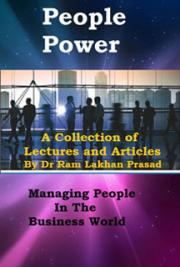SECTION 13.6.
It is not necessary to inform the sagacious reader, now I enter on my concluding reflections, that the discussion of this subject merely consists in opening a few simple principles, and clearing away the rubbish which obscured them. But, as all readers are not sagacious, I must be allowed to add some explanatory remarks to bring the subject home to reason—to that sluggish reason, which supinely takes opinions on trust, and obstinately supports them to spare itself the labour of thinking.
Moralists have unanimously agreed, that unless virtue be nursed by liberty, it will never attain due strength—and what they say of man I extend to mankind, insisting, that in all cases morals must be fixed on immutable principles; and that the being cannot be termed rational or virtuous, who obeys any authority but that of reason.
To render women truly useful members of society, I argue, that they should be led, by having their understandings cultivated on a large scale, to acquire a rational affection for their country, founded on knowledge, because it is obvious, that we are little interested about what we do not understand. And to render this general knowledge of due importance, I have endeavoured to show that private duties are never properly fulfilled, unless the understanding enlarges the heart; and that public virtue is only an aggregate of private. But, the distinctions established in society undermine both, by beating out the solid gold of virtue, till it becomes only the tinsel-covering of vice; for, whilst wealth renders a man more respectable than virtue, wealth will be sought before virtue; and, whilst women's persons are caressed, when a childish simper shows an absence of mind—the mind will lie fallow. Yet, true voluptuousness must proceed from the mind—for what can equal the sensations produced by mutual affection, supported by mutual respect? What are the cold or feverish caresses of appetite, but sin embracing death, compared with the modest overflowings of a pure heart and exalted imagination? Yes, let me tell the libertine of fancy when he despises understanding in woman—that the mind, which he disregards, gives life to the enthusiastic affection from which rapture, short-lived as it is, alone can flow! And, that, without virtue, a sexual attachment must expire, like a tallow candle in the socket, creating intolerable disgust. To prove this, I need only observe, that men who have wasted great part of their lives with women, and with whom they have sought for pleasure with eager thirst, entertain the meanest opinion of the sex. Virtue, true refiner of joy! if foolish men were to fright thee from earth, in order to give loose to all their appetites without a check—some sensual wight of taste would scale the heavens to invite thee back, to give a zest to pleasure!
That women at present are by ignorance rendered foolish or vicious, is, I think, not to be disputed; and, that the most salutary effects tending to improve mankind, might be expected from a REVOLUTION in female manners, appears at least, with a face of probability, to rise out of the observation. For as marriage has been termed the parent of those endearing charities, which draw man from the brutal herd, the corrupting intercourse that wealth, idleness, and folly produce between the sexes, is more universally injurious to morality, than all the other vices of mankind collectively considered. To adulterous lust the most sacred duties are sacrificed, because, before marriage, men, by a promiscuous intimacy with women, learned to consider love as a selfish gratification—learned to separate it not only from esteem, but from the affection merely built on habit, which mixes a little humanity with it.
Justice and friendship are also set at defiance, and that purity of taste is vitiated, which would naturally lead a man to relish an artless display of affection, rather than affected airs. But that noble simplicity of affection, which dares to appear unadorned, has few attractions for the libertine, though it be the charm, which, by cementing the matrimonial tie, secures to the pledges of a warmer passion the necessary parental attention; for children will never be properly educated till friendship subsists between parents. Virtue flies from a house divided against itself—and a whole legion of devils take up their residence there.
The affection of husbands and wives cannot be pure when they have so few sentiments in common, and when so little confidence is established at home, as must be the case when their pursuits are so different. That intimacy from which tenderness should flow, will not, cannot subsist between the vicious.
Contending, therefore, that the sexual distinction, which men have so warmly insisted upon, is arbitrary, I have dwelt on an observation, that several sensible men, with whom I have conversed on the subject, allowed to be well founded; and it is simply this, that the little chastity to be found amongst men, and consequent disregard of modesty, tend to degrade both sexes; and further, that the modesty of women, characterized as such, will often be only the artful veil of wantonness, instead of being the natural reflection of purity, till modesty be universally respected.
>From the tyranny of man, I firmly believe, the greater number of female follies proceed; and the cunning, which I allow, makes at present a part of their character, I likewise have repeatedly endeavoured to prove, is produced by oppression. Were not dissenters, for instance, a class of people, with strict truth characterized as cunning? And may I not lay some stress on this fact to prove, that when any power but reason curbs the free spirit of man, dissimulation is practised, and the various shifts of art are naturally called forth? Great attention to decorum, which was carried to a degree of scrupulosity, and all that puerile bustle about trifles and consequential solemnity, which Butler's caricature of a dissenter brings before the imagination, shaped their persons as well as their minds in the mould of prim littleness. I speak collectively, for I know how many ornaments to human nature have been enrolled amongst sectaries; yet, I assert, that the same narrow prejudice for their sect, which women have for their families, prevailed in the dissenting part of the community, however worthy in other respects; and also that the same timid prudence, or headstrong efforts, often disgraced the exertions of both. Oppression thus formed many of the features of their character perfectly to coincide with that of the oppressed half of mankind; for is it not notorious, that dissenters were like women, fond of deliberating together, and asking advice of each other, till by a complication of little contrivances, some little end was brought about? A similar attention to preserve their reputation was conspicuous in the dissenting and female world, and was produced by a similar cause.
Asserting the rights which women in common with men ought to contend for, I have not attempted to extenuate their faults; but to prove them to be the natural consequence of their education and station in society. If so, it is reasonable to suppose, that they will change their character, and correct their vices and follies, when they are allowed to be free in a physical, moral, and civil sense.
Let woman share the rights, and she will emulate the virtues of man; for she must grow more perfect when emancipated, or justify the authority that chains such a weak being to her duty. If the latter, it will be expedient to open a fresh trade with Russia for whips; a present which a father should always make to his son-in-law on his wedding day, that a husband may keep his whole family in order by the same means; and without any violation of justice reign, wielding this sceptre, sole master of his house, because he is the only being in it who has reason; the divine, indefeasible, earthly sovereignty breathed into man by the Master of the universe. Allowing this position, women have not any inherent rights to claim; and, by the same rule their duties vanish, for rights and duties are inseparable.
Be just then, O ye men of understanding! and mark not more severely what women do amiss, than the vicious tricks of the horse or the ass for whom ye provide provender, and allow her the privileges of ignorance, to whom ye deny the rights of reason, or ye will be worse than Egyptian task-masters, expecting virtue where nature has not given understanding!
End of The Project Gutenberg Etext of A Vindication of the Rights of Woman







